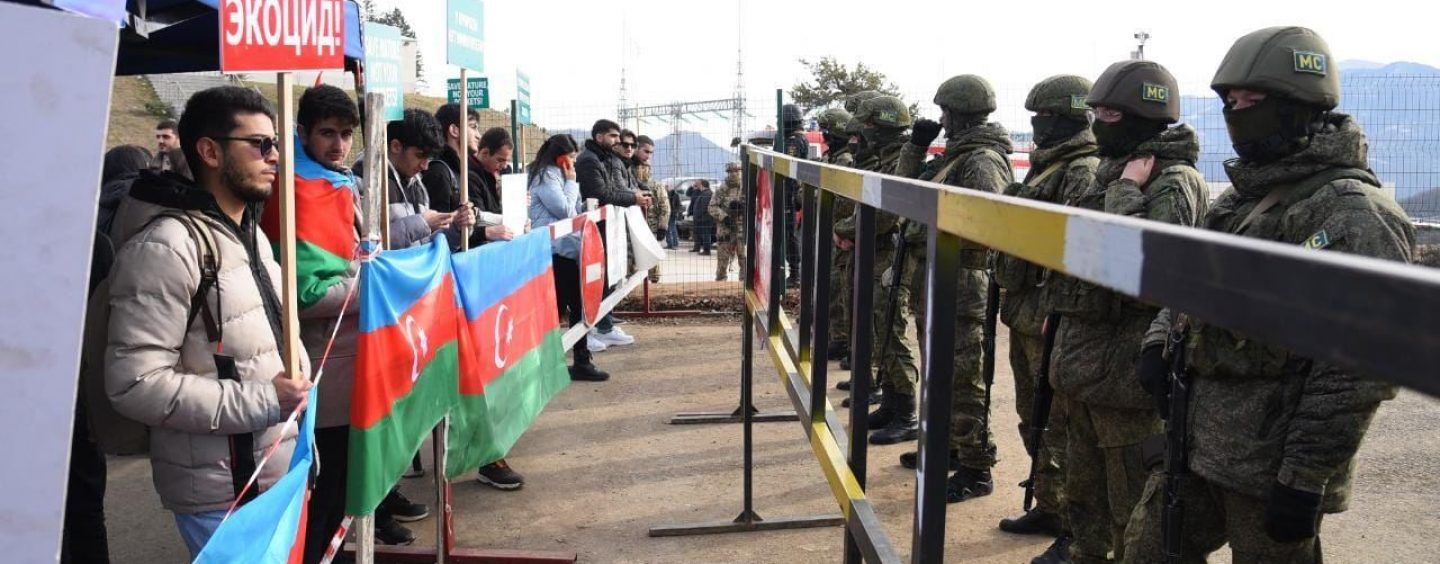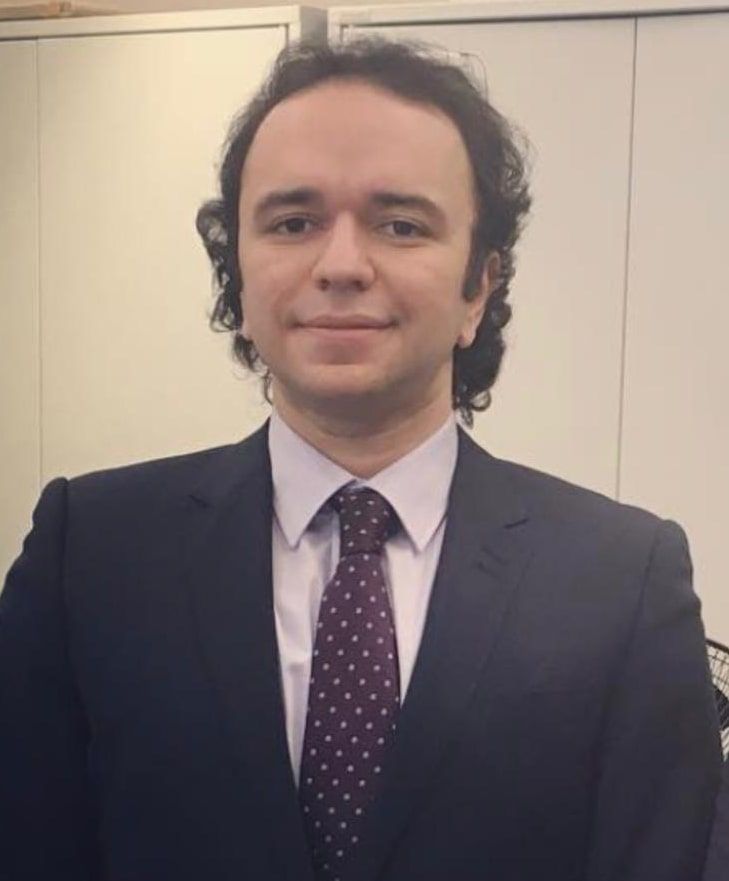Eco-activists shall not be moved: in search of tangible progress

Last week was momentous, and the one that has just begun has the premise of even greater consequentiality. There is no earthly way that the eco-activists and representatives of various civil society organisations, currently gathered at a critical spot on the Lachin-Khankandi Road, on the outskirts of Shusha, will disperse anytime soon unless the bulk of their ever-growing demands is fulfilled.
Excuse for belatedness
Three days spent on the ground last week, providing the opportunity to converse with protestors coming from all walks of life in Azerbaijani society, enabled me to swiftly develop a perspective of my own. But it is only today, after a couple of 24-hour time stretches that have passed since the departure from Shusha, that I am writing this piece, for it has always been my view that when you are too close to what is taking place, you are insufficiently down the telescope to see a larger picture. A retrospective glance has innumerable advantages. It has also been my concern to scribble something different to a muddled bombast, which one is prone to whilst under the cracking influence of the criticality of events unfolding, augmented by one’s own association with the cause. I wanted my post-journey reflections to be more of a calm and an unemotive explication.
From the commanding heights of Shusha, the ethereal propensities of which are always sufficiently dazzling to make one feel content, Khankandi, the place where the Russian peacekeeping contingent remains temporarily stationed, with the remnants of the Armenian separatist forces hiding under its protection, appeared to be shrouded in an explicable silvery mist. An instant neurological recall came into the equation swiftly, leading me to proudly recall my first trip to Shusha in late April of this year, which was for the purpose of attending an international conference. Since then, there have been two EU-mediated trilateral meetings and one convocation held in Sochi under the watchful eyes of the increasingly effete Russian President Vladimir Putin, with an Azerbaijani-Armenian peace treaty remaining sadly elusive.
Three layers of discontent
For one to be able to appreciate the underpinnings of the ongoing protests, which started on 12 December, one should consider the situation within three layers. Firstly, there is overall discontent about the lack of intensity regarding post-conflict normalisation. Constant snags, caused by Armenian attempts to reverse the process, unwarranted French meddling, Moscow's unwillingness to allow a breakthrough to take place, and other factors have had their own share of deleterious impact.
Secondly, the so-called Russian peacekeepers’ conduct has been marred with ineptitude, with the vagueness of its mandate leading to accusations to which responses have been sluggishly contrived and insubstantial. Thirdly, the whole situation, on a more contemporary level, should also be viewed within the framework of Azerbaijani attempts to conduct ecological monitoring in the Gyzylbulag gold and Demirli copper-molybdenum deposits and other places of relevance, and constraints militating against this due to the combined impact of the Russian contingent’s unwillingness and provocations of groups led by Ruben Vardanyan, the so-called “first minister” of the illegal Armenian entity based in Khankandi.
Environmental concerns and the new Lachin Road
The Azerbaijani view is not in wont of painstaking examination, for its objectives are only too obvious. What the public and the government desire is that Baku should be able to exercise its sovereign rights in the form of assessing the damage caused to the environment and have full access to the territory under Russian control for related monitoring purposes, installing customs and border checkpoints at the entrance to the new Lachin Corridor, ensuring that movement is properly controlled. In line with Article 6 of the 10 November 2020 trilateral declaration, Azerbaijan “shall guarantee the safety of citizens, vehicles, and goods travelling along the Lachin Corridor in both directions”, with the route itself remaining under the control of the Russian ‘peacekeeping‘ contingent. Moscow views its duties as circumscribed to the protection of the road, without carrying out any checks
In response to Azerbaijani demands, sticking to a flinty, and what could be seen as an adamantly imperialist outlook, the Kremlin seems to be of the opinion that there is nothing that could give rise to perturbation. What can be inferred from the glamorous Russian Foreign Ministry Spokesperson Maria Zakharova’s recent statement is that Moscow, as of now, counterposes both Baku and Yerevan on the grounds that it is a shining innocent, without whose presence in Karabakh the situation would have been considerably worse. Russia detests accusations levied against it and appears to think that its position engenders no dissent or even qualification.
It is also possible that Moscow finds both Azerbaijan and Armenia slightly ungrateful for their salvation. It may be under the misapprehension that Baku and Yerevan, driven by their dissatisfaction for reasons that are not commensurate with each other, are seeking an opportunity to join forces with the Kremlin’s present global assailants. It is a finely-balanced arrangement that Moscow finds within its interests to propound. It may say to Yerevan that, by ‘prohibiting’ Azerbaijani ecologists and journalists from entering the zone under its control, it protects the local Armenian population by counteracting Baku’s attempt to infiltrate the area. In communication with the nation on whose sovereign territory it is temporarily stationed, Moscow’s argument is likely to be one hinging on security concerns and the lack of absolute guarantees for ensuring smooth monitoring.
Today’s Russian modus operandi has a tinge of its attitude during the Second Karabakh War of 2020. After all, Moscow has to do what suits its interests. Growing Azerbaijani pressure is unlikely to go unheeded. The combined import of the legitimacy of Baku’s demands and the strength of the Azerbaijani position within the present geopolitical conjecture will tilt the balance sooner or later. It is ultimately a question of bargaining chips from the guise of Russia’s perceived interests vis-à-vis the Baku-Yerevan confrontation.
So far as the overall Armenian reaction is concerned, it appears to have been invested in ignoring the root cause of the protest and construed in a way that is hostile to any enquiry regarding an explanation as to the illegal exploration of Karabakh’s gold, copper and molybdenum resources and the abuse of the new Lachin Corridor facilitating all types of illicit activities. Yerevan wants the world at large to harbour an immutable bias against Baku, hence “blockade” claims have been rife in the Armenian media from the first day of the protest action. In retrospect, Baku’s account centred around the view that it was not the eco-demonstration, but the Russian contingent’s closure of the road leading to Khankandi that caused a temporary blockage, and the evidence substantiating different instances of movement in both directions along the Lachin-Khankandi route seems to have dismantled the hysteria of the allegedly “humanitarian catastrophe”.
Back to the essentials, the entire process has a logic that is centred on the necessity of intensifying the peace negotiations leading to a deal, and the welcome integration of Karabakh Armenians into the rich rainbow of Azerbaijani society as an inevitable concomitant. In the interim, however, the focus is on new arrangements, rendering Azerbaijani control over the new Lachin Corridor as a viable truism, as the currently ongoing environmental protests cannot be viewed separately from the abuse of the route connecting the zone of the Russian temporary control with Armenia.
As Neil Watson, British Journalist, commented: “The environmental aspect is just the tip of the iceberg. This is the crunch time for Russian ‘peacekeepers’ and the Russian presence on Azerbaijani soil. The standoff is significant. It is only a matter of time before Russian involvement is consigned to the dustbin of history.”
---
Follow us on Twitter @AzerNewsAz
Here we are to serve you with news right now. It does not cost much, but worth your attention.
Choose to support open, independent, quality journalism and subscribe on a monthly basis.
By subscribing to our online newspaper, you can have full digital access to all news, analysis, and much more.
You can also follow AzerNEWS on Twitter @AzerNewsAz or Facebook @AzerNewsNewspaper
Thank you!

